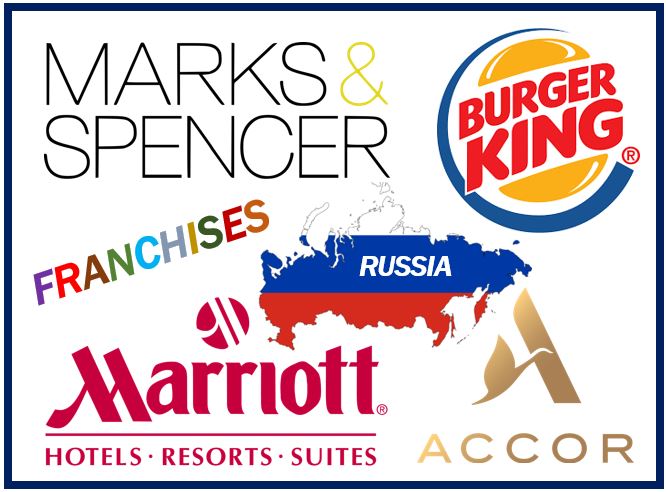Since the invasion of Ukraine began, European, North American, Japanese, and other multinationals have stopped doing business in or with Russia. However, some companies remain open there because they say they cannot shut them down just like that.
Not easy for franchises to leave Russia
Hotels Marriot and Accor, Burger King, and Marks & Spencer are complex franchise businesses that cannot suddenly decide to uproot and go, like many other companies can.

In a franchise operation, the firm is outsourced to third party individuals or businesses. Without the cooperation of the franchisee, closing down cannot be done swiftly. Burger King and Marks & Spencer have 800 restaurants and 48 stores, respectively, still operating in Russia. Marriot has 28 hotels open and Accor 57.
Just these four companies have nearly one thousand outlets in Russia that are still doing business.
Regarding businesses with franchising agreements that operate in Russia, the BBC made the following comment:
“A lot of Western firms have held such agreements for decades. For example, Marks and Spencer stores have been operated by a Turkish company called FiBA, which has held the rights to sell the retailer’s products across Eastern Europe, since 1999.”
“The retail giant has said it has suspended shipments of its goods to FiBA in response to the war.”
Franchising a good option for many companies
If you want to break into a foreign market but don’t have the resources to do so or have limited local knowledge, franchising is a useful and relatively successful option.
However, your contract with the franchisee does not allow you to cancel everything whenever you want. If you do, you will be sued. Most agreements are typically at least 10 years long.
What is franchising?
In one of our articles, I wrote:
“Franchising is an arrangement in which the franchisor gives the franchisee the right to distribute and sell the franchisor’s goods or services and use its business name and business model for a specified period, and possibly covering a geographical area.”
The owner of the business is the franchisor, while the person who receives the right to use the franchisor’s business model, name, products, etc. is the franchisee.
There are many different types of franchising arrangements. Often, the franchisee’s supplier of goods, services, and training is the franchisor.
